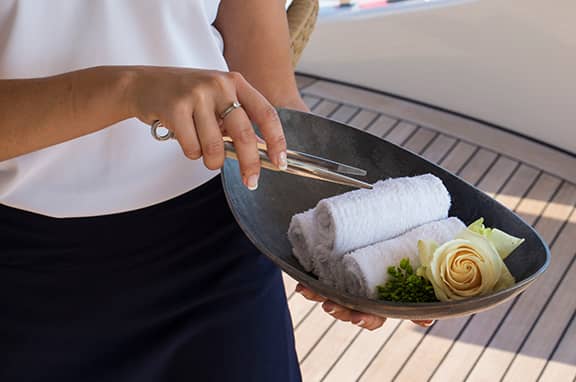What is an Advanced Provisioning Allowance?

The Advanced Provisioning Allowance is a standard part of any charter contract. The intent of the allowance is for the charter guest to fully enjoy the holiday by transferring all daily issues of expenses to the yacht captain. Reconciliation of the actual expenses is done on the final day of the charter.
Each charter payment schedule includes an Advanced Provisioning Allowance (APA). Generally it is payable with the second (final) payment due 30 days before you board the yacht. The allowance is, in essence, a deposit for all expenses anticipated during the charter period.
That deposit is forwarded to the Captain before the charter in order to complete the preparations prior to the arrival of the guests. Reconciliation of the actual expenses is maintained during the charter so that a provisional estimate can be given to the charter principal on the final day of the charter. Final reconciliation may take some weeks if international currencies, credit card transactions or invoiced services need to be factored in.
APA expenses commonly include:
- Transport to and from the vessel for charterer and party
- Fuel for main engines and generators
- Fuel for tenders and water sports equipment
- Food, beverages, alcohol for guests
- Berthing and other harbor charges (pilots and diver fees)
- Value added tax (VAT) and local taxes
- Port fees, ship agents fees
- Flowers (supplemental flowers if requested after the initial setup. Under MYBA terms the first set of flowers are for the owner's account)
- Charges for waste disposal
- Shore charges for water and electricity
- Personal laundry
- Charter party communications (including internet usage)
- Bank fees and agent fees
- Hire/purchase of any special equipment placed on board at request of charterer
The Captain may request additional funds of the charterer if the expenditure level requires it during the charter. Charterers should try to be detailed in their preferences so that yachts are not over provisioned. If you ask for expensive wines in your preferences please be very specific in the quantities. Our charter brokers can provide detailed guidance and if necessary coordinate with your regular suppliers a delivery to be made to the yacht which helps avoid dissapointment.
Certain assumptions are made regarding the disbursement of the APA.
- The expenses are accrued at cost. The owner cannot profit from the provision of consumables.
- Use of an agent should be avoided due to the added layer of charges. The owner is not reimbursed for the crew's time to purchase provisions.
- Fuel tank levels should be recorded at the beginning and end of the charter. Hourly engine consumptions are for use as a guide but don't accurately reflect the amount of fuel consumed as most engine hours on charter are done at slow speed which burns a fraction of the full speed hourly rate. Using the actual volume consumed helps alleviate arguments about charter expenses.
- The captain is responsible to maintain the records of monies spent and should provide a receipt for all expenses.
The Captain presents a provisional accounting of the APA with the charterer (and/or their broker) on the last day of the charter. Communication charges, currency conversion rates on charged items, refueling upon arrival may all be projected for later reconciliation with the client. Any unused portion of the APA is refundable to the charterer and if there is a balance due payment is expected to be done immediately via wire transfer.
There are some areas of the APA reconciliation an experienced broker examines closely on reconciliation:
- Any addition of agent fees to provisioning charges
- The projection of final fuel costs
- Actual fuel use based on itinerary
- Repair charges or damage claims
- Adjustments to the communication charges
The APA is a charter industry standard. It is the responsibility of the Captain to ensure the allowance is spent responsibly, records are maintained and a detailed final accounting is provided to the charterer and/or broker.
We have seen more "disagreements" over the way that money has been spent on a charter than any other area of dissapointment. Our team work hard to avoid these issues.
 Sales
Sales
 Charter
Charter
 Management
Management
 Crew
Crew
 About Us
About Us
 Contact Us
Contact Us
 Newsroom
Newsroom

